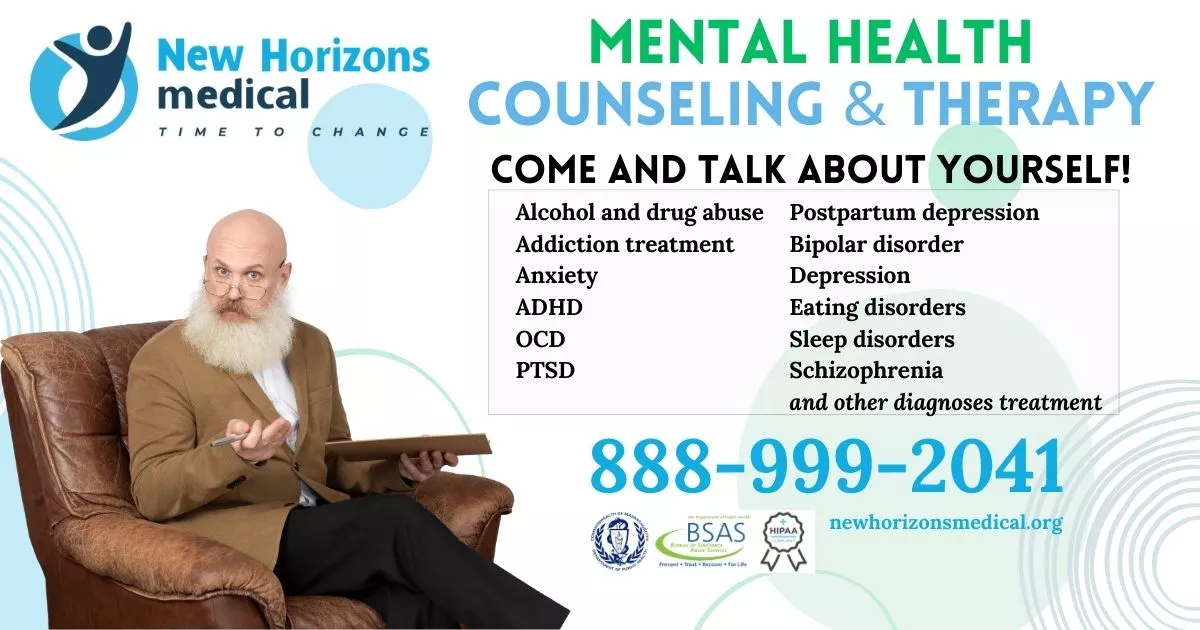The Importance of Mental Health And Wellness: a Deep Study Therapy, Treatment, and Their Advantages
Mental health and wellness substantially shapes specific well-being, impacting actions, ideas, and feelings. Therapy and treatment act as essential avenues for recovery and personal advancement. They provide organized support, aiding individuals browse life's obstacles. Yet, numerous continue to be uninformed of the certain kinds of therapy readily available and their distinct advantages. Recognizing these aspects is essential for any person thinking about professional psychological health support. What adheres to may light up paths to strength and gratification that several overlook.
Comprehending Mental Wellness and Its Influence
Psychological health is commonly ignored, it plays an important role in overall health and everyday performance - Cognitive Behavioural Therapy. It encompasses psychological, psychological, and social aspects that influence just how individuals assume, really feel, and behave. A person's psychological health and wellness straight influences their capacity to handle anxiety, connect to others, and choose. Poor mental health and wellness can bring about different issues, consisting of anxiety, clinical depression, and trouble in keeping partnerships, every one of which can hinder specialist and individual growth.Furthermore, mental wellness has far-reaching implications for physical wellness. Persistent stress and anxiety and without treatment psychological conditions can contribute to various physical disorders, such as heart illness and deteriorated immune feedbacks. On the other hand, positive psychological health and wellness cultivates resilience, making it possible for individuals to deal with life's challenges successfully. Comprehending mental health and wellness's relevance is important for cultivating supportive settings that advertise psychological wellness, thereby boosting the lifestyle for areas and people alike
The Different Kinds Of Counseling and Treatment
In the domain name of psychological health and wellness, different counseling and treatment kinds cater to diverse needs. Individual therapy strategies concentrate on individual problems with individually sessions, while group treatment dynamics foster shared experiences and assistance among participants. Recognizing these modalities is important for picking the appropriate intervention for various obstacles.
Individual Counseling Approaches
Numerous private counseling methods exist, each created to resolve certain mental wellness problems and cater to varying client demands. Cognitive Behavior Modification (CBT) concentrates on determining and transforming negative thought patterns, while Psychodynamic Treatment explores unconscious procedures and past experiences. Humanistic Treatment stresses individual growth and self-actualization, fostering a supportive setting. Interpersonal Therapy (IPT) targets connection problems and interaction patterns to improve emotional health. In addition, Acceptance and Commitment Therapy (ACT) motivates customers to accept their ideas and sensations while devoting to personal worths. Each technique uses one-of-a-kind methods and ideologies, enabling professionals to tailor their techniques to the person, therefore boosting the restorative experience and promoting psychological health recuperation.
Group Treatment Dynamics
Team therapy dynamics incorporate numerous restorative techniques that take advantage of the power of common experiences and interpersonal connections. This kind of treatment typically consists of diverse groups, cultivating a safe setting for individuals to express feelings and thoughts. Trick sorts of group treatment include assistance groups, which offer psychological support; process-oriented groups, concentrating on interpersonal communications; and psychoeducational teams, aimed at passing on expertise about psychological health and wellness concerns. The dynamics within these teams can improve self-awareness, as participants often review their habits in relation to others. Furthermore, team therapy promotes a sense of belonging, reducing feelings of isolation. Via shared stories and collective analytical, participants can establish coping techniques and gain insights, eventually adding to private development and healing.
The Duty of Counseling in Mental Health And Wellness
Therapy plays an essential duty in mental health by supplying different approaches customized to individual needs. These approaches provide expert advice that can bring about significant enhancements in psychological wellness. Understanding the various kinds of therapy can assist individuals make informed decisions about their psychological healthcare.

Kinds of Counseling Strategies
While different counseling strategies exist, each offers one-of-a-kind approaches and understandings into mental health and wellness therapy - Mental Health Resources. Among the most famous are cognitive-behavioral therapy (CBT), which concentrates on changing adverse thought patterns; psychodynamic treatment, which checks out subconscious procedures and childhood years experiences; and humanistic techniques, stressing personal development and self-actualization. Additionally, solution-focused short treatment focuses on finding options in the here and now rather than delving into issues. Group treatment promotes community and shared experiences, while family therapy addresses relational dynamics within domestic frameworks. Each method satisfies various demands, lining up with specific choices, problems, and healing goals. Comprehending these methods assists customers make informed options concerning their mental health and wellness trip and advertises reliable treatment tailored to their special scenarios
Benefits of Expert Advice
Many people benefit from professional guidance in handling their psychological health obstacles. Counseling provides a risk-free area for clients to explore their ideas and sensations Related Site without judgment. This restorative environment fosters self-awareness, enabling individuals to identify patterns in their behavior and create much healthier coping approaches. Professional support additionally offers accessibility to evidence-based methods that can alleviate symptoms of anxiety, clinical depression, and other mental health and wellness issues. Moreover, therapists can aid in establishing practical objectives and supply assistance Click Here in attaining them, enhancing general well-being. The collective partnership between therapist and customer is vital, as it promotes liability and encourages individual growth. Inevitably, professional advice plays an important duty in steering psychological health and wellness journeys, bring about improved psychological resilience and life satisfaction.
Benefits of Treatment: Healing and Development

Exactly how to Select the Right Specialist or Counselor
How can one browse the often frustrating procedure of choosing the ideal therapist or therapist? Determining personal requirements is necessary; people must consider their details issues, whether anxiety, partnership, or anxiousness challenges. It is beneficial to study various healing approaches, such as cognitive-behavioral treatment or psychodynamic treatment, to discover an appropriate match.Next, possible clients must look for referrals from relied on sources or make use of on-line directories. It is essential to evaluate therapists' qualifications, including their education and learning, licensing, and locations of specialization. Scheduling preliminary assessments can help evaluate compatibility, enabling people to evaluate communication designs and individual comfort.Finally, logistical aspects, such as place, schedule, and costs, ought to likewise be taken into consideration. By thoughtfully evaluating these components, one can make an informed choice, inevitably fostering a therapeutic connection that sustains psychological health and wellness and individual growth.
Overcoming Stigma: Welcoming Mental Health And Wellness Assistance
While social attitudes towards psychological wellness have actually evolved, stigma still presents a significant obstacle for many looking for support. This stigma usually shows up as mistaken beliefs bordering mental ailment, leading individuals to feel pity or anxiety concerning their battles. Lots of people wait to pursue therapy or treatment as a result of fret about being evaluated or labeled. Overcoming this stigma is essential for cultivating an encouraging environment where individuals can openly review their mental wellness needs.Communities and companies play an essential function in this makeover by advertising understanding and Continue education and learning about psychological health concerns. Efforts that highlight personal tales can humanize these experiences, motivating others to look for help without worry. As acceptance grows, individuals might feel extra equipped to welcome mental health and wellness support, acknowledging it as a necessary aspect of overall wellness. By dismantling preconception, culture can cultivate a society of understanding, empathy, and proactive mental healthcare.
Methods for Maintaining Mental Health Outside of Therapy
Although therapy supplies valuable support, maintaining mental wellness outside of sessions is similarly crucial. Individuals can implement numerous methods to sustain their mental health. Normal physical task plays a necessary function, as exercise promotes the launch of endorphins, which boost mood. Additionally, a well balanced diet abundant in nutrients can substantially influence emotional security and energy levels.Practicing mindfulness and reflection aids individuals take care of anxiety and develop greater self-awareness. Establishing a consistent rest routine is additionally fundamental, as quality remainder is essential for cognitive function and emotional regulation.Engaging in social tasks fosters link and lowers feelings of seclusion. Pursuing pastimes or rate of interests can provide an innovative outlet and increase self-esteem. Finally, setting practical goals and practicing self-compassion allows people to cultivate strength. By integrating these strategies right into day-to-day live, individuals can effectively support their mental health beyond treatment sessions.
Often Asked Concerns

Just How Can I Inform if I Need Therapy?

Identifying the demand for treatment frequently includes acknowledging relentless feelings of unhappiness, anxiety, or frustrating anxiety. If day-to-day working comes to be challenging or coping systems fail, seeking expert support may be a valuable advance.
What Should I Anticipate in My Initial Treatment Session?
In the initial treatment session, individuals can expect an intro, conversation of their reasons for looking for aid, and an introduction of the therapist's technique, creating a foundation for future discussions and developing convenience in the restorative space.
Are Online Therapy Procedure as Effective as In-Person Ones?
Research indicates that online therapy sessions can be as effective as in-person ones. Variables such as the therapist's credentials, customer engagement, and the therapeutic relationship greatly influence outcomes, no matter the tool used.
Can Therapy Assist With Relationship Concerns?
Therapy can assist individuals in addressing connection concerns by providing tools for interaction, understanding feelings, and resolving disputes. Mental Health Resources. It advertises healthier dynamics and encourages personal development, ultimately fostering stronger, much more fulfilling connections between partners
The Length Of Time Does Treatment Generally Last?
Therapy duration varies significantly based on private needs and objectives. Normally, sessions may last from a couple of weeks to numerous months, with some people participating in ongoing treatment to deal with long-lasting issues and personal development. Cognitive Behavioral Treatment (CBT) concentrates on identifying and transforming negative thought patterns, while Psychodynamic Treatment explores unconscious processes and previous experiences. Key kinds of group treatment include support teams, which supply psychological support; process-oriented teams, focusing on social communications; and psychoeducational teams, intended at presenting knowledge concerning psychological health and wellness concerns. Among the most famous are cognitive-behavioral treatment (CBT), which focuses on modifying adverse idea patterns; psychodynamic therapy, which checks out subconscious processes and childhood years experiences; and humanistic approaches, highlighting individual growth and self-actualization. Group treatment cultivates neighborhood and shared experiences, while family members therapy addresses relational dynamics within familial frameworks. It is beneficial to study various therapeutic approaches, such as cognitive-behavioral therapy or psychodynamic therapy, to find an appropriate match.Next, prospective clients need to look for references from relied on resources or make use of on the internet directories.